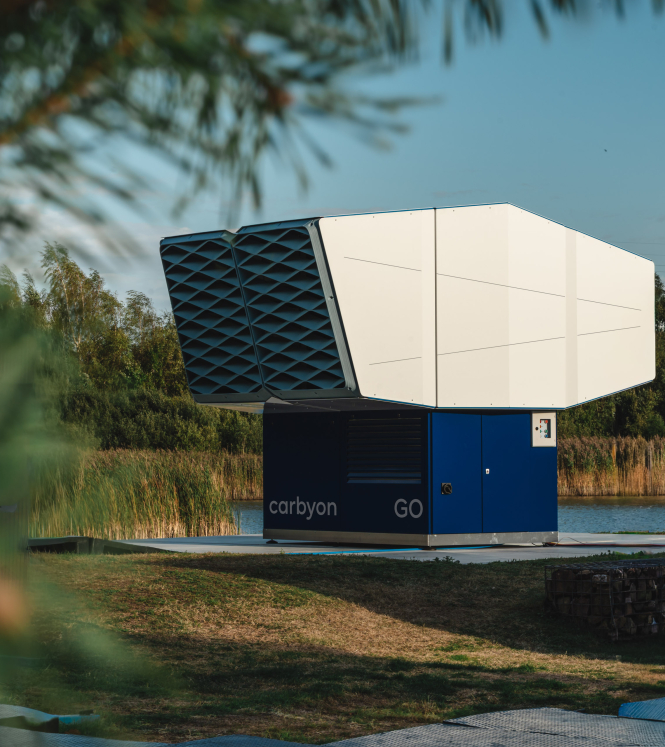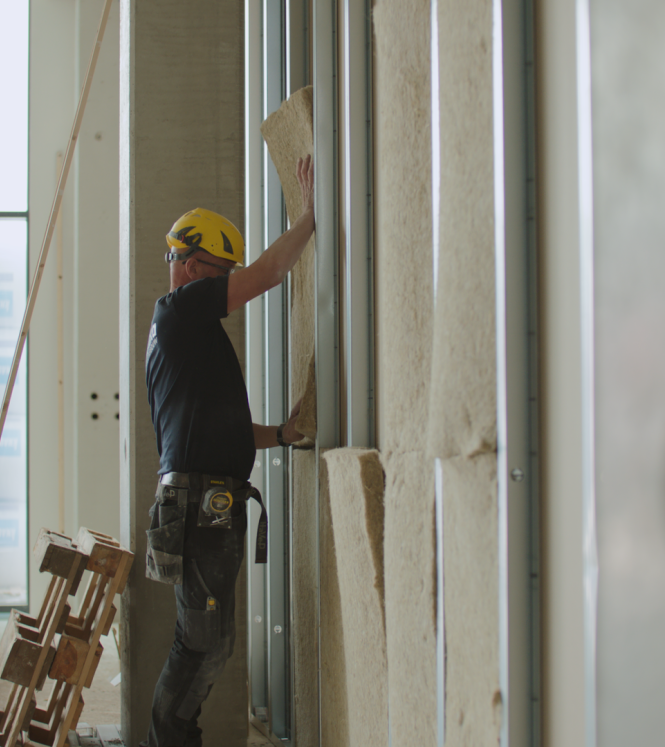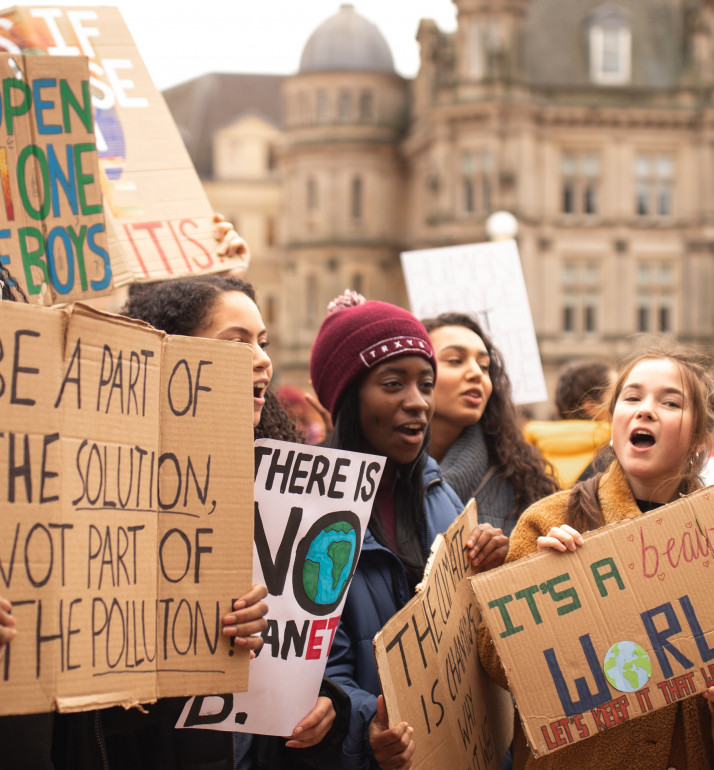

The 100 cities working to make cities smarter
With over half the world’s population living in cities, adapting metropolitan areas to be climate-neutral by 2050 is high on Europe’s list of ambitions. Cities are responsible for consuming over 75% of the earth’s natural resources, so it’s no surprise that initiatives are popping up worldwide to support them in deploying climate-neutral solutions.
Collaboration is key
National and local governments, citizens, businesses, knowledge and financial institutions ─ we all need each other in order to achieve climate-neutrality. With everyone aligned in what needs to be done to reduce the impact our consumption has on the planet, there is a huge market potential for sustainable solutions. We believe that international collaboration is the key to building sustainable and future-proof cities.
In April 2022, the Netherlands Enterprise Agency organised a working visit to Brussels to discuss how the European Union and national and local governments can support startups and SMEs in making cities climate-neutral in 2030. During the visit, Tony Agotha (Member of Cabinet of Executive Vice-President Frans Timmermans), Matthew Baldwin (Deputy Director-General DG Move and Mission Leader) and Rosalinde van der Vlies (Director Clean Planet DG Research & Innovation) shared their vision on the paradigm shifts of the Green Deal and the EU Cities mission.
The EU Mission for climate-neutral and smart cities by 2030 and the role of businesses
The two-day visit provided fruitful discussion on how to facilitate the deployment of sustainable solutions within cities. With local governments only having a say on limited parts of the assets of a city, it’s up to the public and industries to push for the realisation of their green ambitions. The companies present highlighted their cases and exchanged requirements on local, national and European level for enabling the upscaling of their business ideas.
The EU Mission for climate-neutral and smart cities by 2030 has selected 112 cities that will act as experimentation and innovation hubs. These cities are set to develop climate-smart solutions, such as blue-green roofs, positive energy districts and efficient waste-recycling systems. This allows other cities to learn the rights and wrongs of climate-neutral solutions and work together towards a fully climate-neutral Europe by 2050. A hundred cities were selected from the European Union and an extra 12 cities were chosen from countries associated to Horizon Europe. The Netherlands is proud to have seven of our cities included in the list.
The 112 cities participating have access to tailor-made advice and assistance from a dedicated platform managed by NetZeroCities. Networking opportunities, experience and learnings exchange, also on allocating funding, are all benefits on offer for the participating cities.
The Commission doesn’t expect cities to have all the answers right away, but offers ground for exploration and deployment of a wide variety of solutions. The selected cities will now start developing Climate City Contracts, involving citizens and partners to set out their plans to achieve climate neutrality by 2030. The contracts cover all sectors such as energy, buildings, waste management and transport. But what about the other European cities that were not selected? They will not miss out either, as the Commission is committed to offering extra support for their ambitions.
New (business) models by measuring impact and co-benefits
Both private and public sectors need clear reference frameworks and instruments to accelerate the pathways to climate-neutrality. The Common Reporting Framework, developed by the Global Covenant of Mayors, will be used as a standard for the reporting by the cities. The CRF streamlines measurement, reporting procedures and methodologies based on using baseline and target emission scenario’s to ensure robust climate action planning, implementation and monitoring in line with IPCC guidelines.
Benefits of energy access and energy poverty will soon be built into the CRF framework. In addition, a recent study from JRC investigated additional perspectives concerning synergies and trade-offs between climate and air quality. This study shows that there is a valid business case for a healthy living environment which will enable the creation of new business cases on this topic.
Concerning other societal forms of impact, the European Commission acknowledges that these dimensions are much more difficult to measure. The societal dimension is tricky to put in numbers, a certain amount of creativity is needed to qualify and quantify impact. Entrepreneurs are advised to develop a storyline with impact pathways on a medium and longer term in which assumptions can be made as long as transparency is regarded.
What’s next?
Specific Horizon Europe Research and Innovation Calls have already been launched for all cities with climate-neutral ambitions. A budget of 360 million euro is allocated for the implementation of the city projects. The Horizon Europe Advisors of the Netherlands Enterprise Agency support cities with finding appropriate calls, the development of consortia and provide feedback on the project proposals.
At the end of this month, Helsingborg, Sweden will be home to the H22 City Expo, an initiative launched by Sweden to develop solutions aimed at improving quality of life in smarter, more sustainable cities. Climate Impact Day (June 15 -16) will provide an excellent moment for industry, government officials and the public to further explore the many opportunities on offer for future-proofing cities. The event provides an opportunity to deep-dive into how measurement and mission-driven blended finance impacts the EU cities mission.
In the meantime, the Netherlands is launching an awareness campaign during the month of June to highlight the urgent need to create climate-neutral and green cities throughout the world. Find out more about Greener cities and be sure to follow our socials to participate in our campaign. We believe that by joining hands, we can have greater impact. Let’s make cities greener and smarter together!
Looking to contact someone directly?
Are you working to make your city smarter and want to know more about this initative? We've compiled a list of relevant advisors for you to contact:
- National Contact Point (NCP) for Horizon Europe in the Netherlands
- The Climate Neutral and Smart Cities Hub of the Netherlands Enterprise Agency support cities, businesses and others interested parties who can contribute with tailor made support: climateneutralsmartcities@rvo.nl
- The Netherlands Representative of the European Union in Brussels: (Permanent Representation of the Netherlands to the EU: Overview | LinkedIn) or send an email to BRE@minbuza.nl





